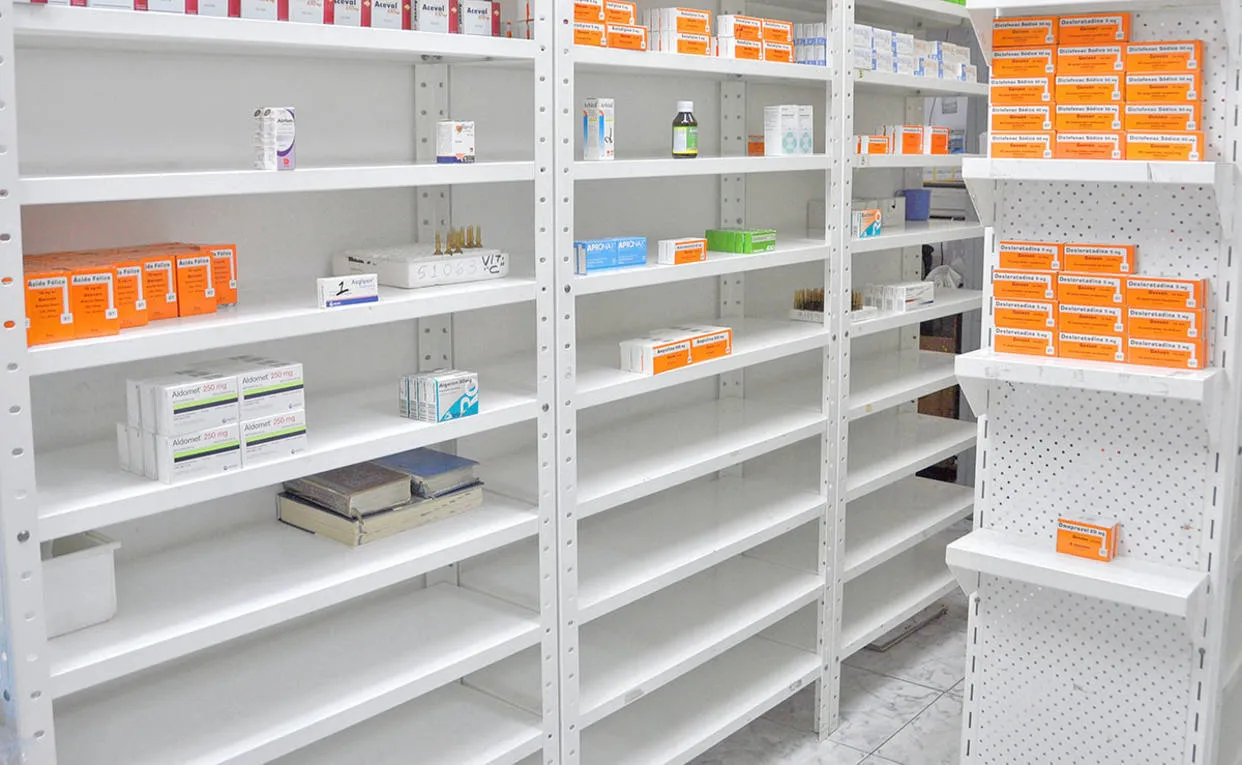The shortage of medicines strongly hits the residents of the Lara state.The "monitoring of the right to health in Venezuela" carried out at the end of 2017 by Convit AC showed that the shortage of drugs to treat diabetes cases is 96.3%, while acute respiratory conditions are scarce at 94.9%.
NGO experts indicated that the figure of absence of medicines is alarming in a country where one in three people is hypertensive and more than 8 million people are at risk of diabetes, according to the investigation of the newspaper El Impulso.
Luis Cabezas, president of Convite, indicated how complicated the pharmaceutical industry can be reactivated.However, she rejected that Governor Carmen Meléndez and the Regional Director of Health, Linda Amaro, show as an achievement to deliver medications for hypertension and a simple analgesic, when they should be available in any establishment.
The shortages of shortage of essential medicines to treat the four main causes of morbidity in the country are “terrifying” according to the fifth bulletin dated January 22 “Monitoring of the right to health in Venezuela”, carried out by Convite A.C., a civil associationcomposed of researchers, teachers and activists who have long experience in the social field.
In Venezuela, medications for hypertension, diarrhea, diabetes and acute respiratory infections are scarce by more than 80%, according to the monitoring that was made in December 2017 in national pharmacies, local and independent chains.
The study indicates that an 80% scarcity is alarming in a country where one in three people is hypertensive and more than 8 million people are at risk of diabetes.
Luis Cabezas, president of the organization, told El Impulso that for the study in Barquisimeto, 27 pharmacies were monitored in Iribarren and one in Palavecino during the second and fourth week of December.
The evaluation took into account the existence of active ingredients and not trademarks, so the results show the failures of imported and national medicines.
Results
Barquisimeto is one of the country alert cities where failures are more severe.Non -insulin -dependent diabetes drugs are scarce by 96.3%, for acute respiratory infections are scarce at 94.9%, for diarrhea by 92.6%and for hypertension in 83.3%.
In the case of diabetes, the report details that medications were only found in local pharmacy chains, a little of each of the principles investigated.But there is total shortage in national chains.
As for hypertension, the Barquisimetanos ran with the "good" luck to find five of the six active ingredients that were monitored, but Athenolol's shortage was absolute.
Of respiratory infections, only three of the eight active ingredients sought were supplied to Barquisimetan pharmacies.The drug of greater availability was amoxicillin, it could also be found, in small quantities, levofloxacin and clarithromycin.
While for diarrhea, there was a discreet availability of ciprofloxacin and timetoprim;However, the scarcity index remained close to 100%.In the case of metronidazole, shortage was absolute.
urges to receive humanitarian aid
This is the fifth bulletin that the NGO performs and “between September and December the shortage has not lowered, if you want there have been mild supply in some cities but they do not give us positive signs of improvement”
Cabezas said that the panorama in the country is unfortunate for the existence of a very complex humanitarian emergency, where there are no proper policiesFrom the government and where there is a price control that regulates the sale of medicines to 12 bolivars, "and people boot the 10 and 20 bolivars tickets."
In addition, the Government owes millions to the pharmaceutical industry, the little dispatch of inputs has caused the closure of establishments, especially of independent and small pharmacies.Others changed bouquet, pharmacies are now fifty and in their shelves they exhibit chucheías or anything except medicines.
"This shortage is combined with a terrible country situation," said heads, because there is an increase in diarrhea associated with poor water quality, Venezuelans tend to develop hypertension due to the level of stress or poor diet, they can develop diabetes.Not having optimal hygiene and living in violated conditions also contributes to developing these pathologies.
The president of Convita regretted that Governor Carmen Meléndez and the Regional Director of Health, Linda Amaro, show as a great achievement to deliver some losartan boxes (hypertensive) or paracetamol (simple analgesic) when they should be in any establishment, such as10 years ago, "that shows that we are very bad."
He rejected health politicization with the exclusion of people who do not sympathize with the Government and have no resources such as the Patria card, the one who does not have a card has to endure the teeth pain?He wondered.
Luis Cabezas acknowledged that reactivating the pharmaceutical industry is not easy and could take a long time, so he proposes to take urgent measures such as accepting humanitarian cooperation.
"There are 3 thousand transplanted waiting for an immunosuppressant, these people are killing it, humanitarian aid is not an invasion or marines will come as we have been painted, they are world organizations."
He urged the government to resort to pharmaceutical chambers and give clear and unequivocal signs that it has the will to solve the problem."Much of the crisis is in the hand of the government to solve it," he concluded.


